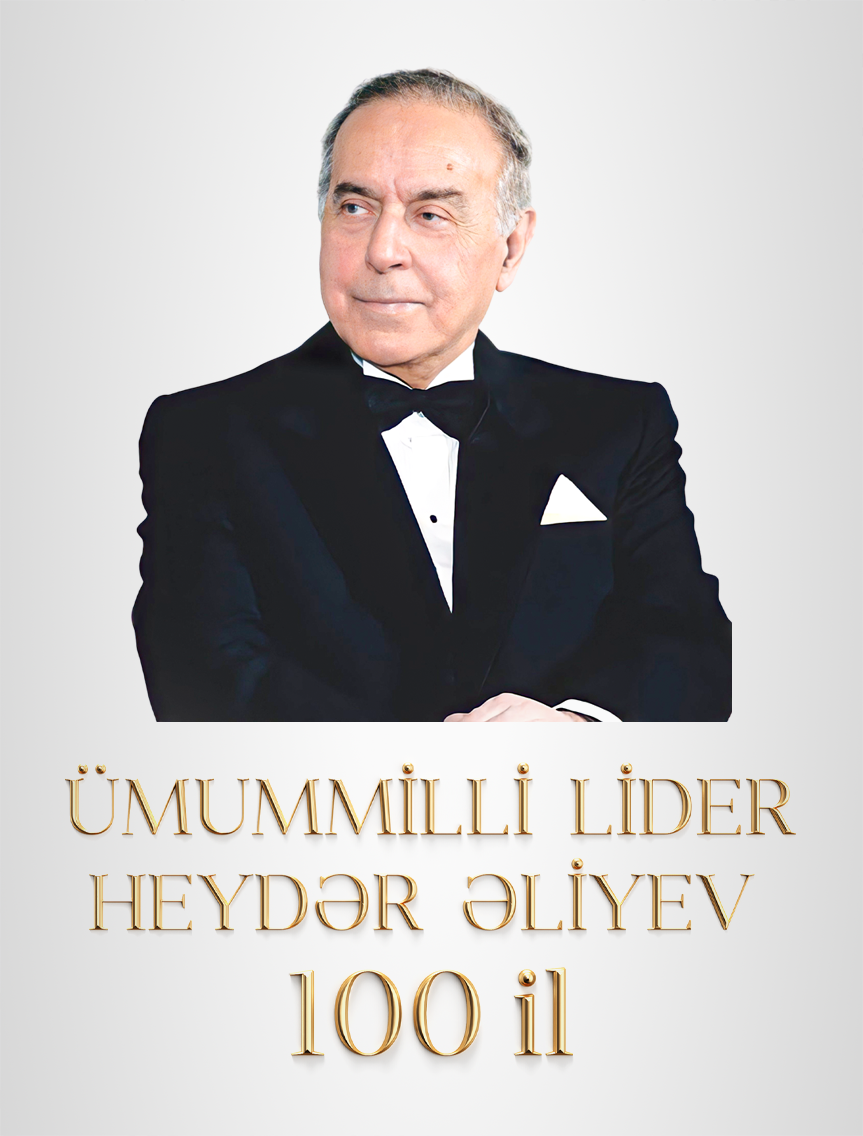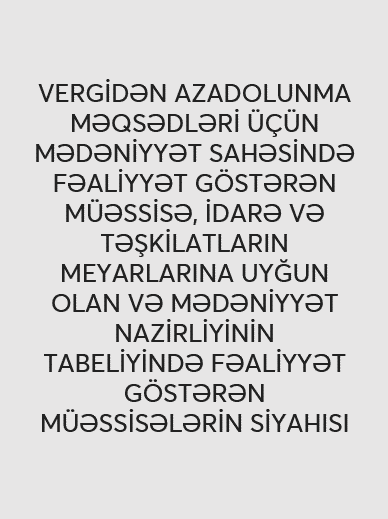AZERBAIJAN
RELİGİON
RELIGIONS IN AZERBAIJAN
Although various religious confessions function in Azerbaijan, Islam has the dominating position. Over 95 percent of the population practices the religion of Islam. According to Article 48 of the Constitution of the Republic of Azerbaijan everyone has the right to freedom of conscience. Clauses 1-3 of Article 18 of the Constitutionof the Republic of Azerbaijan say that in Azerbaijan religion is separated from the state, all religions are equal before the law, to propagate and promote religions humiliating the human personality, which is contrary to the principles of humanity, is prohibited.
The Law of Azerbaijan Republic On religious dreedom determines guarantees the right of each person on attitude to religion and its expression and the right to exercise the same right. Features of the historical development, geographical position of Azerbaijan, the ethnic composition of the population contributed to the existence of different religions here. At separate periods, idolatry, Zoroastrianism, Judaism, Christianity, Islam and many other religious movements were spread in the country, and managed to have the mutual influence on each other. Presently 510 religious communities registered in the territory of the Republic of Azerbaijan. Of these, 32 are non-Islamic religious communities.
Traditional confessions:
Orthodox confession
In 1991, building of Jen Mironosets Church (built in 1907 by Haji Zeynalabdin Tagiyev) was given to the Russian Orthodox Church. In May 2001, Alexeyi II, Patriarch of All Russia, who is visiting Azerbaijan gave this church the status of the cathedral church. At present, there 3 Russian Orthodox church in Baku, and 1 in Ganja and Khachmaz.
Roman Catholic confession
The Catholic community was registered in 1999 in Azerbaijan. In 2000, special building was acquired for this religious community for the implementation of their religious ceremonies and its later turned into the church. In 2007, in accordance with the agreement between the Government of Azerbaijan and the Vatican, the construction of the Roman Catholic Church Baku was completed. And in May of 2002, the head of the Roman Catholic Church John Paul II visited Baku and met with state officials, representatives of the public. In April 2003 the Roman Patriarch Bartholomew II was in an official visit to Azerbaijan and met with government officials, religious figures, Muslim, Christian and Jewish religious communities’ leaders and received by the President of Republic of Azerbaijan Mr. Heydar Aliyev. In 2003, Albanian-Udi religious community was registered by state. Albanian church built in the village of Kish of Sheki and being one of the biggest in the Caucasus, as well as all over the world, was given for use in 2003 after substantial restoration. In Nic settlement of Gabala region in May of 2006, the ceremony of opening of Chotari Albanian Albanian-Udi church in the place of the ancient Holy Church of Elysee held.
Protestantism current
Evangelical-Lutheran Church
Community of Baptist Christian Evangelical
7th Day Adventists
Evangelical Christian religious community in the East The religious community of Christians in The religious community of Molokans
Albanian-Udi Christian Community
Jews
Religious Community of European Jews
Askinazi - The community of Mountain Jews-sefardis
Community of Georgian Jews
The Jews settled in Azerbaijan over the 2500 years. They never faced the religious intolerance and discrimination here. At present, the 7Jewish religious community was registered by state. 3 synagogues in Baku, 1 in Guba, Oguz operate. In March 2003 a new Jewish synagogue was opened in Baku. In September 2003, first Jewish secondary school funded by International Fund ofKhabad Lyubavich was established. Also, according to decision of the Cabinet of Ministers of the Republic of Azerbaijan No. 222, dated October 5, 2006, the number school No 1 in the village of Red Sloboda of Guba region was named after Isaac Abramovich Khanukovn. A high degree of tolerance in the country and absence of discrimination against Jews was eye witnessed in 2006 during visits of the delegation of the United States Conference of Presidents of Major Jewish Organizations, in Azerbaijan on February 9, 14. Deputy Chairman of the organization's delegation M. Honlayn, the President of Euro-Asian Jewish Congress A. Makhevit and other dignitaries included in the delegation.
Non-traditional religions and faiths:
Jehovah's Witnesses
Cathedral of Praise Church Nehemiya
Life-giving grace
International Krishna consciousness
Novoapostol Baha'i Church
Evangelical Christian Community
Religious centers and offices in the respective centers in Azerbaijan keeps business contacts in foreign countries, have participated in international religious events. Thus, the Caucasian Muslims Office has very close relations with the International Organization of Islamic Conference and religious organizations of other foreign Muslim and non Muslim countries.
Thus the Episcopacy of the Russian Orthodox churches besides leading the Christian – Orthodox churches of Caspian littoral regions has an extensive range of cooperation links with domestic and foreign religious centers. Jewish communities of Azerbaijan Sokhnut, Aqudit Israil and Tsuva Israil international organizations, maintains close contact with the Jewish communities of the United States, England and other countries. Christian and Jewish religious educational institutions in the territory of the Republic, as well as the Sunday schools under the Orthodox churches, Bible courses of Evangelical -Christian Protestant communities, Life-giving grace community’s Bible institute, courses of Hebrew of the Jews, Jewish religion and culture, etc. Function here.
The Republic of Azerbaijan is a multi-national and multi-religious country. The country's national policy was determined on the basis of principles of co-existence and tolerance of various nations, ethnic groups and religious minorities.








